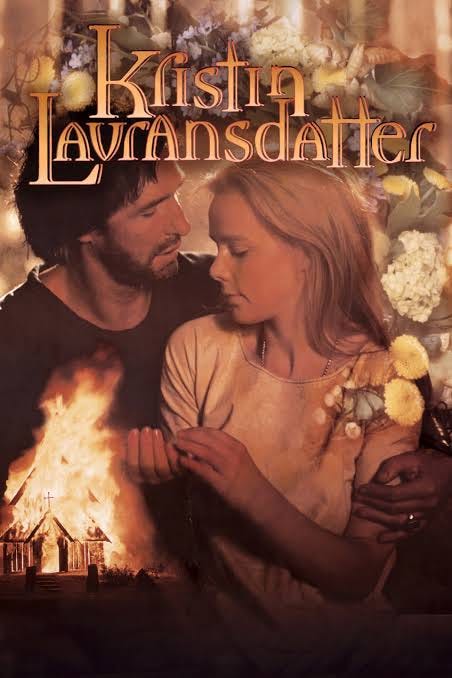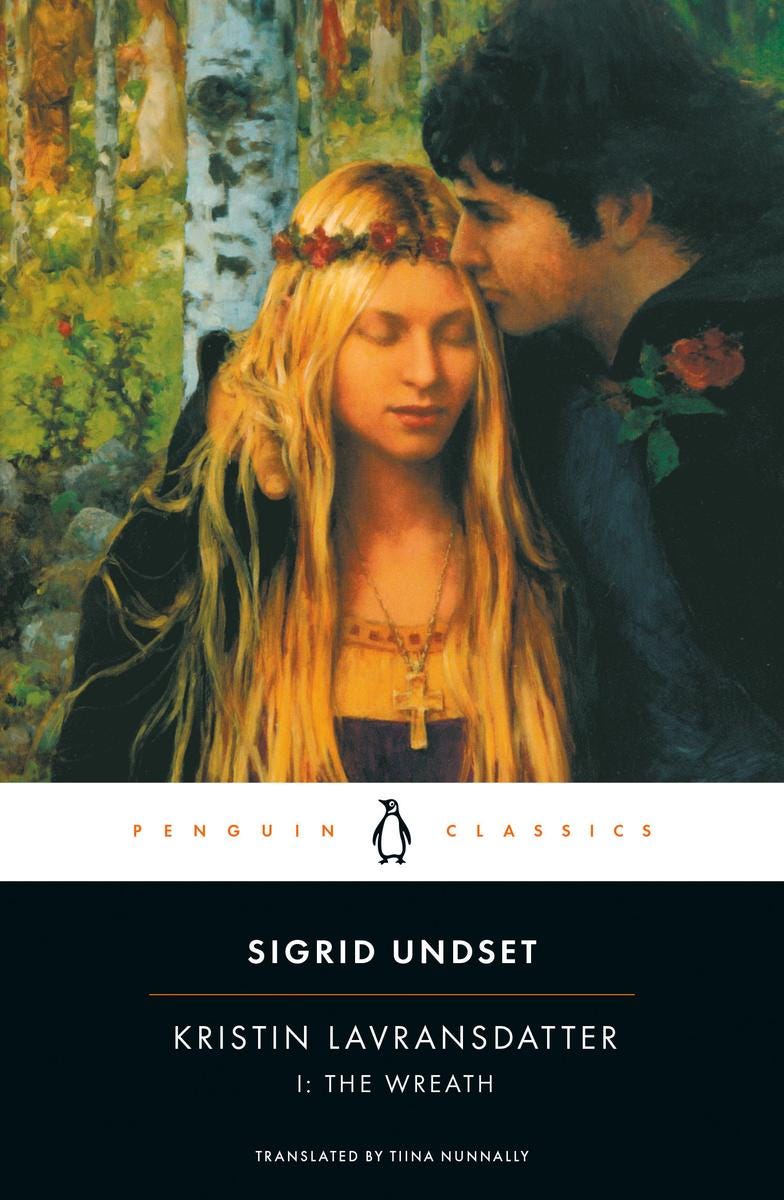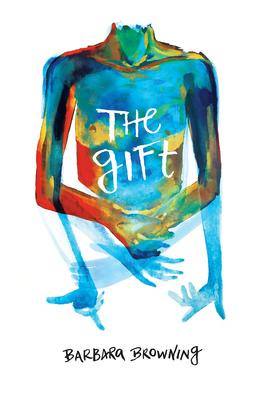Hi, hi.
I come to you today with a reading recommendation! And while I understand that, yes, the premise of this newsletter is essentially “reading recommendations,” I don’t think I’m typically very prescriptive when it comes to the books I’ve written about here, and so it’s really been more of a reading inspiration newsletter than anything else. Until now.
Here is my recommendation: Read a book where the main (or otherwise significant) character has the same first name as you.1
Wait, make that two recommendations: Please also consider giving someone a book prominently featuring a character with their first name.
(With these recommendations comes a perhaps obvious, but still very important caveat: Choose wisely, both in terms of the book and the receiver.)
All of this is to say that I finally read Sigrid Undset’s Kristin Lavransdatter (the excellent Tiina Nunnally translation), a book that was sent to me as a gift over a dozen years ago and has been sitting on a shelf, patiently waiting for the day when I was prepared to tackle an 1,100+ page saga set in rural, 14th-century Norway.
Published in the 1920s, Kristin Lavransdatter is comprised of three books — The Wreath, The Wife, and The Cross — each representing a different stage of Kristin’s life, each evoking her Kierkegaardian struggle with her own existence2, as she embraces and abandons aesthetic pleasures, then ethical duties, all in an attempt to achieve religious transcendence.3
Meaning, Kristin grows up. And along her journey there is an outsized amount of drama — nothing like treasonous plots to usurp a king or the appearance of the bubonic plague to remind you that you’re in the Middle Ages — but there is also a tenderly rendered portrayal of a long ago quotidian reality that is somehow wholly relatable, and not so emotionally dissimilar to our own. There is humor alongside heartache, there are petty problems alongside life-changing events; there is the kind of intense attraction that breaks the bonds of marriage and there are the everyday miracles that come with being a mother, like Kristin’s realization that even the “hot, defiant blood of [her] body turns to sweet, white, innocent milk,” all the better to nourish the lives of those children who were once “carried beneath her heart.”

Should you give this book to a Kristin in your life? Should you read this book if you are the Kristin in your life? Well, ask yourself this: How would you or your Kristin feel about seeing yourself in a character who is impetuous and stubborn, someone who is somehow simultaneously self-righteous and self-abnegating? A woman who loves fiercely and is loved fiercely in return? Someone who, as William T. Vollmann once said, is “strong-willed, sensual, self-destructive and ultimately rock-solid” even if she is “often the architect of her own misery”?
I would imagine that you or your Kristin would feel quite good about all this, and probably even get the same pleasant little narcissistic shiver that I did at the ego-stroking confirmation bias that comes with devouring over a thousand pages that places someone with your exact name at the center of, well, everything. In a time when it can feel like every other narrator remains unnamed, cloaked in anonymity, as if they could be anyone, this type of reading experience is an incredibly potent literary reminder of how liberating it is to read about a someone — especially a someone who is incredibly flawed, who fails over and over again to be the person she wants to be, and yet is never less than herself, which is all that really matters. So, yes, give someone this book, and read this book yourself — even if neither you nor anybody you know is named Kristin.4
(Pro tip, though: Whatever you do, do not give Kristin Lavransdatter to someone named Simon.)

And, if the engineered perversity of reading a book and recognizing yourself in it is at all appealing to you, well, have I got another great recommendation — and, no, it doesn’t matter if your name is Barbara.
So, yes, reading Barbara Browning’s The Gift is in some ways the opposite of seeking out a book in which you recognize yourself in the main character, in that it’s a novel in which you recognize the author in the main character — Barbara Andersen, a professor and performance artist living in downtown Manhattan, much like Browning herself. The Gift is subversive and sexy and extremely playful; as I wrote in an interview I did with Browning for Nylon on the book’s publication in 2017, the novel “pushes at the borders of autofiction… wiggling away any constraints as you would a loose tooth, and exposing many a nerve in the process.” By centering herself and her real life relationships with friends, family, lovers, and online intimates, Browning probes the many ways we construct our lives and our loves, revealing how beautiful and vulnerable the collaboration between people can be, as we attempt to write a better story — and future — together.
And then there’s Sylvia by Leonard Michaels. Best read in one feverish sitting, this novel started off as an autobiographical essay in which Michaels recounted his intensely passionate, doomed first marriage to a brilliant young woman named Sylvia. There is, perhaps, an inescapable luridness to a narrative such as this one — it’s not so much like staring at a car crash as it is like being in a car with a couple that’s fighting and, yeah, also the car crashes and at least one of you dies. But whereas you, the reader, might be inclined to turn away from such toxicity if it were your reality, Michaels confronts it head-on, as if by recounting the particular type of claustrophobia that comes from being in such a hellish embrace, he can find some kind of escape from its clutches.
Though Sylvia is set in 1960s New York City, this is not a hygienic nostalgia trip to that time and place; rather it’s filthy, humid, and festering — meaning, incredibly alluring in its own right. Michaels has a singularly lucid style that cuts right through the grime, and it’s deployed here in a way that can be uncomfortable at times: Should it be this easy to read about the total deterioration of a young woman? There’s no answer to that question, of course, and Michaels certainly isn’t trying to provide it; instead he interrogates the past and himself, never reaching a place of understanding, but moving forward all the same.
Or perhaps you don’t want to read about someone? Or even something? Maybe you want to read about nothing? In that case, please direct your attention to Percival Everett’s Dr. No, which really makes something out of nothing in so many deliriously inventive ways that you realize Everett can really just do anything, can’t he? The titular Dr. No is Brown University professor Dr. Wala Kitu, whose speciality is the subject of nothingness. Even his name is a double negative since “Wala” and “Kitu” both mean nothing in Tagalog and Swahili, respectively, which definitely signifies that he’s something. Our story starts when Kitu gets approached by a man named John Sill, a self-professed villain, who wants to take revenge on the United States for his father’s death by having Kitu help him unleash the power of nothing: “America killed him… and nothing is going to change that.”
While Dr. No contains murders and abductions, a submarine chase and quite a bit of reckless driving, as well as lots of advanced mathematic concepts, it’s also never not extremely fun to be in the palm of Everett’s capable hand, as he steers you through Kitu’s unlikely transformation from math professor to international spy. Along the way, Kitu and his trusty sidekick (a one-legged, 13-year-old rescue dog named Trigo) confront oblivion in a variety of configurations, and gain a different understanding not only of what it means to be a villain and a hero, but also what it might mean to stand for something — or stand up for someone. Nothing has ever/never been this much fun.
But also…
“Sometimes there’s a penalty for knowing too much.” I was told this recently by a bar trivia host after I (discreetly, of course) pointed out how a flaw in one of his questions could have led to incorrect answers. And while, in this case, it didn’t lead to an actual deficit for anyone playing (the host graciously gave everyone credit), I have been thinking a lot lately about the burden of excessive knowledge, or, more precisely, the way knowledge is superficially acquired so easily now and what an onerous trap that can be. Which is all to say, when I have a question about something, I’ve been avoiding Google, and seeking answers in other ways, or just coming to terms with things remaining unknown. Try it!
Last September, I bought this handsome, practically pocket-sized 5 Year Diary, designed by Tamara Shopsin (her novel Laser Writer II is a spot-on portrayal of what it was like to be a teenager in downtown NYC in the late ‘90s), and I can now say, almost eight months in, that it has enabled me to do a thing I’ve never been able to successfully do before: have a daily writing practice. It helps that there’s only space for a few sentences each day, and also that you can buy it and start any day you want! No need to wait for 1/1. I look forward to filling it all up, and being able to see what ordinary and extraordinary things I did each April 27, year after year after year.
“In general, classic literature is a great way to see how unoriginal our mistakes are, and it accomplishes this in a way that contemporary books typically can’t.” This is Catherine Lacey, writing about Middlemarch, in her wonderful Substack, Untitled Thought Project. It’s an insightful essay — and this quote certainly pertains to how I felt when reading Kristin Lavransdatter — and Middlemarch is now next-ish on my reading list.
“If you’ve ever wondered whether copyediting matters, now might be the time when the power of language will become much more clear.” Alicia Kennedy’s essay “On Copy Editing” is a vital reminder of the power of words and choice and the importance of intentionality. There are few writers who are better than she is at confronting a topic from an unexpected angle; I’m always surprised and inspired when I read her. If you haven’t checked it out yet, her book No Meat Required is eye-opening and provocative — a must-read.
A link dump by Michelle Santiago Cortés is still going to be among the best things you’ll find to read on your internet, but do yourself a favor and read everything she writes: Subscribe to her Substack, My Writing, buy her zine (oops, you can’t, but seems like a new one is coming), and become mesmerized by her thoughts on hypnagogia: “If I open my eyes and try to get up slowly, it’s like the air in the room has turned to honey.”
The spelling must also be the same. This is very important, especially for those of us whose names are commonly spelled in a variety of iterations. This might make this recommendation a formidable task, but don’t be deterred! It will be worth it, I hope.
Truly, this book is a great chaser, or vice versa, to Elif Batuman’s brilliant Either/Or. Of course, Batuman’s Selin is determined to live an aesthetic life, whereas Kristin is more wary of her more earthbound impulses. To a point, anyway. She doesn’t mind succumbing to some of them, as her husband reminds her at one point, remembering their early days together, when she came to him as “gentle and pious as a rose,” but then “sometimes scratched [him] bloody.”
Relatable!
If you don’t know anybody else named Kristin, you have my permission to think about me when reading this book.








I added about five things to my reading queue from this one newsletter. I've missed you, Kristin!